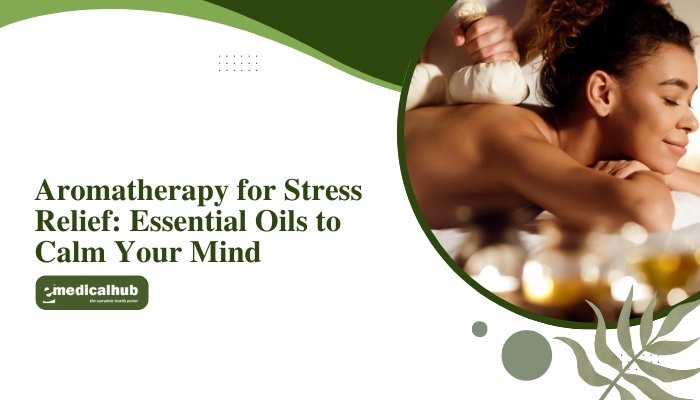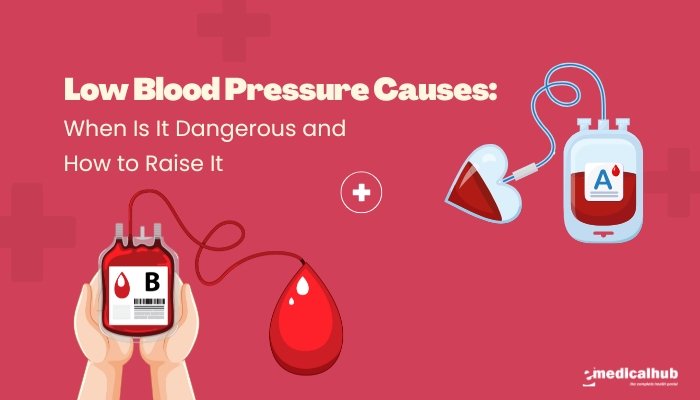Introduction
In today’s fast-paced society, chronic stress has become a common challenge that can affect both mental and physical health. As people search for natural methods to ease anxiety and restore balance, aromatherapy has emerged as a popular complementary therapy.

By using essential oils—highly concentrated plant extracts—aromatherapy aims to harness the healing power of scent to promote relaxation, improve mood, and reduce stress. This article explores how aromatherapy works, reviews some of the most effective essential oils for stress relief, and offers practical guidance on incorporating aromatherapy into your daily routine.
Whether you’re looking to diffuse a calming aroma at home or apply oils topically as part of your self-care regimen, read on to discover how this ancient practice is making a modern impact.
Disclaimer: The information in this article is for educational purposes only and is not a substitute for professional medical advice. If you have severe anxiety or other health concerns, please consult a qualified healthcare provider before using aromatherapy as a treatment.
Understanding Aromatherapy and Essential Oils
What Is Aromatherapy?
Aromatherapy is a holistic healing practice that uses essential oils extracted from plants to improve physical, emotional, and mental well-being. These essential oils capture the natural fragrance and beneficial properties of their source plants, and they are typically used in the following ways:
- Diffusion: Using a diffuser to disperse essential oil molecules into the air.
- Topical Application: Diluting oils with carrier oils (such as coconut or jojoba oil) and applying them to the skin.
- Inhalation: Directly inhaling the aroma from a tissue or via personal inhalers.
- Baths: Adding a few drops of essential oil to a warm bath for a calming soak.
Historical Background
Aromatherapy’s roots extend deep into history:
- Ancient Civilizations: Egyptians, Greeks, and Romans used aromatic plant extracts for medicinal, ritual, and cosmetic purposes.
- Traditional Chinese Medicine and Ayurveda: Both systems have long employed plant-based remedies and inhalation techniques for stress relief and healing.
- Modern Revival: In the late 20th century, scientific research and consumer interest in natural therapies sparked a global resurgence in aromatherapy.
The Science of Essential Oils
Essential oils are complex mixtures of volatile compounds that can influence our mood and physiology. Modern research suggests that:
- Olfactory System: Inhaled molecules stimulate the olfactory receptors, which send signals to the brain’s limbic system—the center for emotion, behavior, and memory.
- Biochemical Interactions: Some compounds in essential oils may have direct physiological effects, such as anti-inflammatory and antioxidant properties.
- Placebo and Ritual Effects: The act of engaging in a self-care ritual can further enhance the perceived benefits of aromatherapy.
How Aromatherapy Can Relieve Stress
Neurological Mechanisms
When you inhale essential oils, their molecules interact with your olfactory system, which is closely linked to the limbic system. This interaction can lead to:
- Mood Regulation: Activation of neurotransmitters like serotonin and dopamine can create feelings of well-being and reduce anxiety.
- Stress Hormone Reduction: Certain oils may help lower cortisol levels, easing the physiological impact of stress.
- Relaxation Response: By promoting a shift from the sympathetic (fight-or-flight) to the parasympathetic (rest-and-digest) state, aromatherapy fosters deep relaxation.
Psychological Effects
Beyond biochemical changes, aromatherapy can affect your mental state by:
- Enhancing Mindfulness: The ritual of setting up a diffuser or applying oils can serve as a mindfulness exercise, helping you focus on the present moment.
- Creating a Calming Environment: Pleasant scents can transform a space, reducing mental clutter and promoting relaxation.
- Eliciting Positive Memories: Certain aromas may trigger pleasant memories or associations, further reducing stress.
Synergistic Benefits
When combined with other relaxation techniques, aromatherapy can amplify overall stress relief:
- Yoga and Meditation: Diffusing essential oils during yoga or meditation sessions can deepen the practice.
- Massage Therapy: Aromatic oils used in massage can enhance both the physical and psychological benefits of touch.
- Sleep Hygiene: Using calming scents in your bedtime routine may improve sleep quality and aid in nighttime relaxation.
Essential Oils for Stress Relief: What Works
Multiple essential oils have been studied and used for their calming properties. Here are some of the most popular and well-researched options:
Lavender (Lavandula angustifolia)
- Benefits:
- Promotes relaxation and reduces anxiety.
- Improves sleep quality.
- Usage:
- Diffuse lavender oil in your bedroom.
- Add a few drops to a warm bath.
- Apply diluted lavender oil topically (on wrists or temples).
Bergamot (Citrus bergamia)
- Benefits:
- Uplifts mood while also having calming effects.
- May reduce stress and anxiety.
- Usage:
- Use in a diffuser to fill a room with its fresh, citrus aroma.
- Apply diluted oil to the chest or wrists.
- Considerations:
- Bergamot can make the skin sensitive to sunlight; avoid direct sun exposure after topical application.
Chamomile (Matricaria recutita or Chamaemelum nobile)
- Benefits:
- Well-known for its soothing, calming effects.
- Reduces irritability and promotes sleep.
- Usage:
- Brew chamomile tea and inhale its steam.
- Diffuse chamomile essential oil in relaxation areas.
- Use in combination with lavender for a potent calming blend.
Ylang-Ylang (Cananga odorata)
- Benefits:
- Balances emotions and reduces stress.
- May lower blood pressure and promote a sense of calm.
- Usage:
- Diffuse ylang-ylang oil during meditation.
- Use in massage oils to combine physical and emotional relaxation.
- Considerations:
- Its strong, floral scent might not be suitable for everyone; use sparingly.
Frankincense (Boswellia carterii)
- Benefits:
- Traditionally used to enhance meditation and spiritual practices.
- Promotes deep breathing and relaxation.
- Usage:
- Diffuse frankincense to create a calming atmosphere.
- Combine with other oils like lavender for a balanced blend.
- Additional Benefits:
- Some research suggests anti-inflammatory properties that may support overall health.
- Some research suggests anti-inflammatory properties that may support overall health.
Clary Sage (Salvia sclarea)
- Benefits:
- Known to reduce stress and promote mental clarity.
- May help alleviate mild anxiety and depressive symptoms.
- Usage:
- Diffuse clary sage oil or use in a personal inhaler.
- Apply diluted oil to the skin to benefit from its calming properties.
How to Use Essential Oils for Stress Relief
Diffusion Methods
Diffusers are among the most popular methods for using essential oils:
- Ultrasonic Diffusers: These devices use water and ultrasonic vibrations to disperse a fine mist of essential oil into the air.
- Nebulizing Diffusers: These do not use water; they disperse pure essential oil droplets, providing a more concentrated aroma.
- Advantages: Diffusing essential oils in your living space can create a relaxing ambiance, making it easier to unwind after a long day.
Topical Application
Applying diluted essential oils directly to the skin can provide targeted relief:
- Carrier Oils: Always dilute essential oils in a carrier oil (such as coconut, jojoba, or almond oil) to prevent skin irritation.
- Pulse Points: Apply to wrists, temples, or the back of the neck for a subtle, continuous effect.
- Massage Blends: Combine with massage techniques to further enhance relaxation and reduce muscle tension.
Inhalation Techniques
For quick relief, inhalation is a simple and effective method:
- Direct Inhalation: Place a drop of oil on a tissue and inhale deeply.
- Steam Inhalation: Add a few drops of essential oil to hot water, cover your head with a towel, and inhale the steam.
- Personal Inhalers: Portable devices that allow you to inhale essential oils on the go.
Aromatic Baths
Adding essential oils to your bath can create a spa-like experience:
- Bath Salts and Oils: Combine with Epsom salts for muscle relaxation.
- Creating a Ritual: A warm bath infused with calming scents can help prepare you for a restful sleep and reduce stress.
Safety and Precautions
General Safety Guidelines
- Dilution is Key: Essential oils are highly concentrated. Always dilute them with a carrier oil for topical use.
- Patch Testing: Perform a patch test on a small area of skin to check for any allergic reactions before widespread use.
- Avoid Ingestion: Unless under the guidance of a qualified practitioner, do not ingest essential oils as they can be toxic.
Special Considerations
- Pregnancy and Nursing: Some essential oils may not be safe during pregnancy or while breastfeeding. Consult with a healthcare provider.
- Children and Pets: Use caution with essential oils around children and animals. Some oils may be harmful if inhaled or applied in concentrated forms.
- Quality Matters: Choose high-quality, therapeutic-grade essential oils from reputable brands that provide third-party testing and clear labeling.
Potential Interactions
- Medications: Certain essential oils can interact with medications. If you are on prescription drugs, consult with your healthcare provider before using aromatherapy.
- Health Conditions: If you have respiratory conditions (like asthma) or skin conditions, check with a specialist to ensure that the essential oils you choose are safe for your use.
Integrating Aromatherapy into a Holistic Stress Management Plan
Combining with Mindfulness Practices
- Meditation and Deep Breathing: Enhance the calming effects of essential oils by practicing mindfulness meditation or deep breathing exercises while using aromatherapy.
- Yoga Sessions: Diffusing calming oils like lavender or chamomile during yoga can deepen relaxation and mental focus.
Lifestyle and Environmental Modifications
- Create a Calm Environment: Use essential oils in your home or workspace to establish a soothing atmosphere.
- Establish a Routine: Incorporate aromatherapy into daily routines—whether it’s a morning ritual to set a positive tone for the day or an evening routine to promote restful sleep.
- Physical Activity: Combine aromatherapy with regular exercise to enhance mood and reduce stress levels.
Complementary Therapies
- Massage Therapy: Use essential oil blends during massage sessions to relieve muscle tension and improve circulation.
- Acupuncture: Some practitioners integrate aromatherapy with acupuncture for enhanced relaxation and treatment of stress-related conditions.
- Herbal Supplements: Consider combining aromatherapy with other natural stress-reduction methods, such as herbal teas or supplements, after consulting with a healthcare provider.
Frequently Asked Questions (FAQ)
- What is the best essential oil for stress relief?
Lavender is among the most researched and widely used essential oils for reducing anxiety and promoting relaxation. - How should I use essential oils safely?
Always dilute essential oils with a carrier oil before applying them to your skin, and perform a patch test to check for sensitivity. - Can I ingest essential oils for stress relief?
Ingestion is not recommended without the supervision of a qualified practitioner, as it can be toxic. - How do diffusers work, and are they effective?
Diffusers disperse essential oil molecules into the air, creating an ambient scent that can promote relaxation and reduce stress. Ultrasonic and nebulizing diffusers are popular choices. - Can aromatherapy improve my sleep?
Yes, oils such as chamomile and lavender can promote relaxation and better sleep quality when used as part of a nighttime routine. - Are there any side effects of using essential oils?
Some individuals may experience skin irritation, headaches, or respiratory issues if oils are used improperly. Always use high-quality oils and follow recommended guidelines. - How often should I use aromatherapy for stress relief?
It can be used daily as part of your routine. Many people incorporate it into both their morning and evening rituals. - Can aromatherapy be combined with other relaxation techniques?
Absolutely. Combining aromatherapy with meditation, yoga, or deep breathing exercises can enhance overall stress relief. - What should I look for when buying essential oils?
Choose therapeutic-grade oils from reputable brands that offer third-party testing and clear labeling regarding purity and potency. - Are essential oils safe for children and pets?
Use caution when using essential oils around children and pets, as some oils can be harmful. Consult a pediatrician or veterinarian for guidance. - Can I use essential oils in my home office to reduce work-related stress?
Yes, diffusing calming essential oils like lavender or bergamot can help create a more relaxed and focused workspace. - Is there scientific evidence supporting aromatherapy for stress relief?
While more research is needed, several studies suggest that essential oils such as lavender and chamomile can reduce anxiety, lower cortisol levels, and improve overall mood.
Conclusion
Aromatherapy harnesses the natural power of essential oils to create a calming and therapeutic environment, making it an appealing option for stress relief. By interacting with the olfactory system and influencing the brain’s limbic regions, essential oils can help reduce anxiety, promote relaxation, and even improve sleep quality. Oils like lavender, bergamot, chamomile, ylang-ylang, and frankincense have been widely studied and are commonly used to alleviate stress and create a sense of well-being.
However, while promising, the benefits of aromatherapy should be considered complementary to other stress management strategies. Integrating essential oils with mindfulness practices, yoga, meditation, and a healthy lifestyle can amplify their effects. Safety remains paramount: using high-quality products, proper dilution, and adhering to usage guidelines are critical to avoid adverse effects.
Ultimately, aromatherapy offers a natural, accessible, and enjoyable way to help calm your mind and manage stress. Whether you choose to diffuse essential oils in your home, apply them topically, or incorporate them into your daily rituals, the gentle power of these botanical extracts can play an important role in fostering a more balanced, relaxed, and focused state of mind.
References
- Perry ND, Perry E. Aromatherapy in the management of psychiatric disorders: Clinical and neuropharmacological perspectives. CNS Drugs. 2006;20(4):257-280.
- Lis-Balchin M. A review of the science of aroma therapy. Altern Med Rev. 2006;11(1):1-14.
- Herz RS. Aromatherapy facts and fictions: A scientific analysis of olfactory effects on mood, physiology and behavior. Int J Neurosci. 2009;119(2):263-290.
- Lehrner J, Eckersberger C, Walla P, et al. Ambient odors of orange and lavender reduce anxiety and improve mood in a dental office. Physiol Behav. 2005;86(1-2):92-95.
- Diego MA, Jones NA, Field T. Aromatherapy positively affects mood, EEG patterns, and sympathetic activity in a randomized clinical trial. Int J Neurosci. 1998;95(3-4):211-221.
- Goel N, et al. Olfactory influences on mood and autonomic, endocrine, and immune function. Psychoneuroendocrinology. 2005;30(8):976-988.
- Kim YJ, et al. The effects of essential oil inhalation on stress and cognitive performance in a workplace environment. J Altern Complement Med. 2010;16(12):1325-1332.
- Bilia AR, et al. Essential oils in chronic pain: The role of inflammation. Curr Med Chem. 2014;21(34):4223-4242.
- Perry N, Perry E. Clinical aromatherapy: Essential oils in practice. 2nd ed. Churchill Livingstone; 2006.
- Moss M, et al. Effects of ambient odours on mood and cognitive performance in a work environment. Int J Neurosci. 2003;113(1):15-32.
- Haze S, et al. Influence of lavender on sleep quality in insomniacs. J Altern Complement Med. 2002;8(6):831-835.
- U.S. Food and Drug Administration. Botanical Drug Development: Guidance for Industry. Silver Spring, MD: FDA; 2004.





